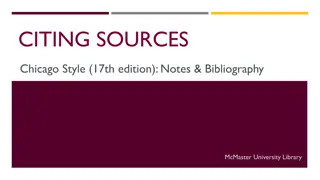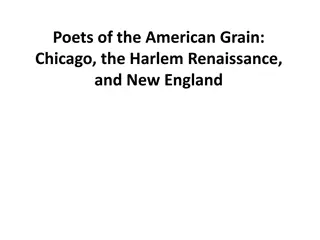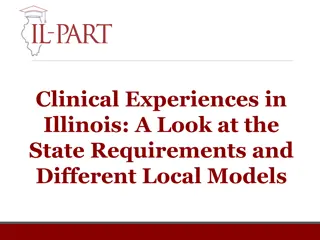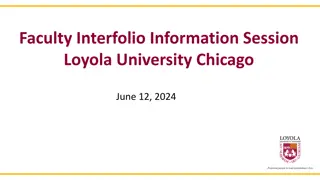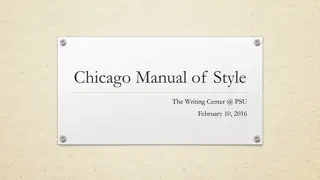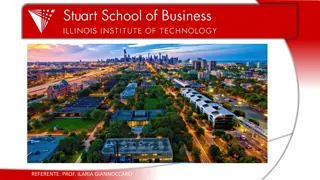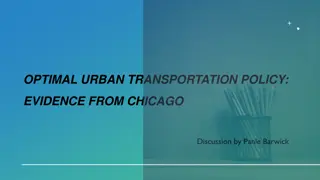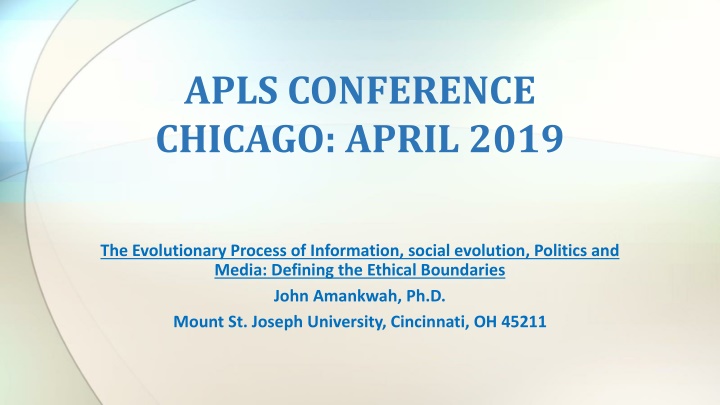
Evolutionary Process of Information, Social Evolution, Politics & Media in Chicago Conference April 2019
Delve into the complexities of human evolution and the diffusion of information in the context of social evolution, politics, and media. Explore the ethical boundaries and the dynamic nature of human evolutionary systems as discussed in the APLS Conference held in Chicago in April 2019.
Download Presentation

Please find below an Image/Link to download the presentation.
The content on the website is provided AS IS for your information and personal use only. It may not be sold, licensed, or shared on other websites without obtaining consent from the author. If you encounter any issues during the download, it is possible that the publisher has removed the file from their server.
You are allowed to download the files provided on this website for personal or commercial use, subject to the condition that they are used lawfully. All files are the property of their respective owners.
The content on the website is provided AS IS for your information and personal use only. It may not be sold, licensed, or shared on other websites without obtaining consent from the author.
E N D
Presentation Transcript
APLS CONFERENCE CHICAGO: APRIL 2019 The Evolutionary Process of Information, social evolution, Politics and Media: Defining the Ethical Boundaries John Amankwah, Ph.D. Mount St. Joseph University, Cincinnati, OH 45211
APLS CONFERENCE CHICAGO: APRIL 2019 The most pathetic thing about humans is the inability to capture the totality of the content of our world. We are placed on this serene isle of strangeness of things that are knowable yet elusive in many ways. We are constantly beset with evolutionary challenges that forbid us to travel far preventing us from capturing the essence of infinity that dangles before our eyes. Rev. John Amankwah, Social Evolution, Politics & Media
The Evolutionary Process of Information, social evolution, Politics and Media: Defining the Ethical Boundaries The Schema Theory: explains how the human brain absorbs information and processes it The problem: how information is diffused Whether information retains its pristine content Whether information transmitted changes or . . .
The Evolutionary Process of Information, social evolution, Politics and Media: Defining the Ethical Boundaries Human Evolutionary Systems: constantly evolving and thrusting us into a web of metaphorical ideas physicality of human informational systems has always remained complex and baffling it is always evolving and dynamic, possessing an enormous capacity of potency to become something that slips through our fingers. It is atomic in nature yet without particles.
The Evolutionary Process of Information, social evolution, Politics and Media: Defining the Ethical Boundaries Hidalgo C sar noted: 1. information is physical. It is as physical as Boltzmann s atoms or the energy they carry in their motion. 2. Information is not tangible; it is not a solid or a fluid. It does not have its own particle either, but it is as physical as movement and 3. Information is incorporeal, but it is always physically embodied. 4. Information is not a thing; rather, it is the arrangement of physical things. It is physical order, like what distinguishes different shuffles of a deck of cards.
The Evolutionary Process of Information, social evolution, Politics and Media: Defining the Ethical Boundaries Immanuel Kant (1998, 1787) postulated that knowledge about the physical reality of objects cannot be gained through perception and therefore perception cannot be neither veridical not valid concluding that the properties of a thing in itself remain indeterminate in any empirical sense Kant, I. (1998/1787). Kritik der Reinen Vernunft [Critique of Pure Reason]. Hamburg: Meiner. However, Peter Beattie s schema theory on the processing of information by the human brain privileges the notion of perception as different among beholders. Beattie P. (2019). Information: Evolution, Psychology, and Politics. In: Social Evolution, Political Psychology, and the Media in Democracy. Palgrave Macmillan, Cham
The Evolutionary Process of Information, social evolution, Politics and Media: Defining the Ethical Boundaries Communication Field: (Wood, 2016) (Langer, 1947). scholars posit three levels of informational mutation: selection organization, and interpretation According to these authors, information in its physical nature possesses a potency that allows it to be transmitted in different formats, going through the sensory perception and reaching the cognitive level Suzanne Langer, (1977). Feeling and Form. Prenticed Hall: Pearson Edu. Co. Julia T. Wood, (2016). Interpersonal Communication: Everyday Encounters, 8th ed. Cengage
The Evolutionary Process of Information, social evolution, Politics and Media: Defining the Ethical Boundaries The Development of our Human Brains: Social evolution theorists have noted in several of their works that to understand our complex minds, a look at Darwin s theory of evolution is necessary thus pointing to his approach of asking the ultimate questions of why humans tend to think or act the way they do as opposed to asking proximate questions. First, language according to them differentiates humans from their early homo sapiens That our human language developed early in our human history because of the radical environmental changes that helped to adapt through a higher cooperation as a preferred way through natural selection process (Peter J. Richerson and Robert Boyd (2008); Michael Tomasello, 2014; Henry Plotkin, 1994; Stefan Klein, 2014)
The Evolutionary Process of Information, social evolution, Politics and Media: Defining the Ethical Boundaries Is language hereditary? Social Darwinists say yes but neglected its environmental impact. Gabriel Tarde, a later Social Darwinist would critique his former colleagues.
The Evolutionary Process of Information, social evolution, Politics and Media: Defining the Ethical Boundaries Tarde noted They use this word [heredity] indifferently to express the transmission of vital characteristics through reproduction and the transmission of ideas and customs, of social things, by ancestral tradition, by domestic education, and by custom- imitation
The Evolutionary Process of Information, social evolution, Politics and Media: Defining the Ethical Boundaries Emile Durkheim, a social anthropologist postulated that the replication of ideas through imitation should be situated within social groups and notes: Each social group has a collective inclination for an act, quite its own and the source of all individual inclinations, rather than their result
The Evolutionary Process of Information, social evolution, Politics and Media: Defining the Ethical Boundaries The Concept of Meme . Henry Plotkins, for instance argues all of memetic replication looks different from genetic replication: not much longevity except for core conventional meaning and startling detail; very little fidelity apart from simple memes; and a fecundity that probably varies from person to person as a result of differences in cognitive capacity yet to be understood
The Evolutionary Process of Information, social evolution, Politics and Media: Defining the Ethical Boundaries Impact of Social Evolution on Politics and Media: 1. The contribution of social evolution to our understanding why people act the way they do and believe what they believe is because of the notion that information is physical embedded in human brains and must be communicated through a medium, i.e. speech, print media, radio, T.V. or the Internet. 2. In the world of politics, information always trickles down to us through mediated forms- journalism, radio, TV, the Internet, etc. and in the last twenty thirty years through social platforms. The watering down of such information to those who do not control the information only makes matters worse. However, it is also true that the media is an information provider that transport information from its point of origin to millions of consumers. Our extreme reliance on the media for information means that it has tremendous power in shaping our believe systems.
The Evolutionary Process of Information, social evolution, Politics and Media: Defining the Ethical Boundaries Conclusion: The schema theory premised on the notion that our brains are wired to process information and propel us to articulate the information through interpretation has awed us because of the complexities involved on the process of information observed that information has the capability of transforming the social environment through several conduits
The Evolutionary Process of Information, social evolution, Politics and Media: Defining the Ethical Boundaries Memes do not spread from brain to brain like computer files copied from computer to computer, without prejudice. They spread differentially, depending on the brain s preexisting schemas, and they are rough copies, linked to idiosyncratic memories and emotions in different brains. Hence, the information content of a meme in two minds may be the same, but the subjective understanding or meaning they engender may be different. And these subjective understandings, undergirded by memories and emotion, make some ideologies or social representations more or less likely to be adopted. In the fashion, the lines of ethics become blur; stories are hyped, misinterpreted, and misinformation spread.
The Evolutionary Process of Information, social evolution, Politics and Media: Defining the Ethical Boundaries The struggle to articulate the conceptualization of political information processes either through political campaigns by politicians or through the media plays an important role for citizens in determining the ethical underpinnings of the information they absorb.
The Evolutionary Process of Information, social evolution, Politics and Media: Defining the Ethical Boundaries The influence of media information systems in politics has increased in the last thirty years because of the advancement in media technology, and has greatly increased the utilization of media technology by politicians to reach a broader target audience.










